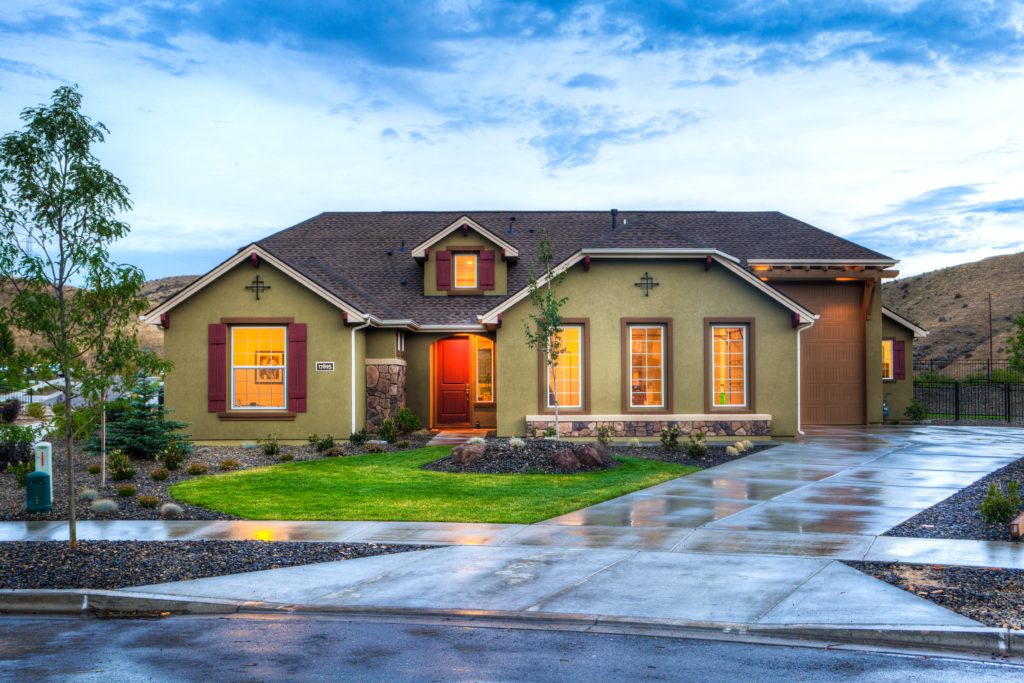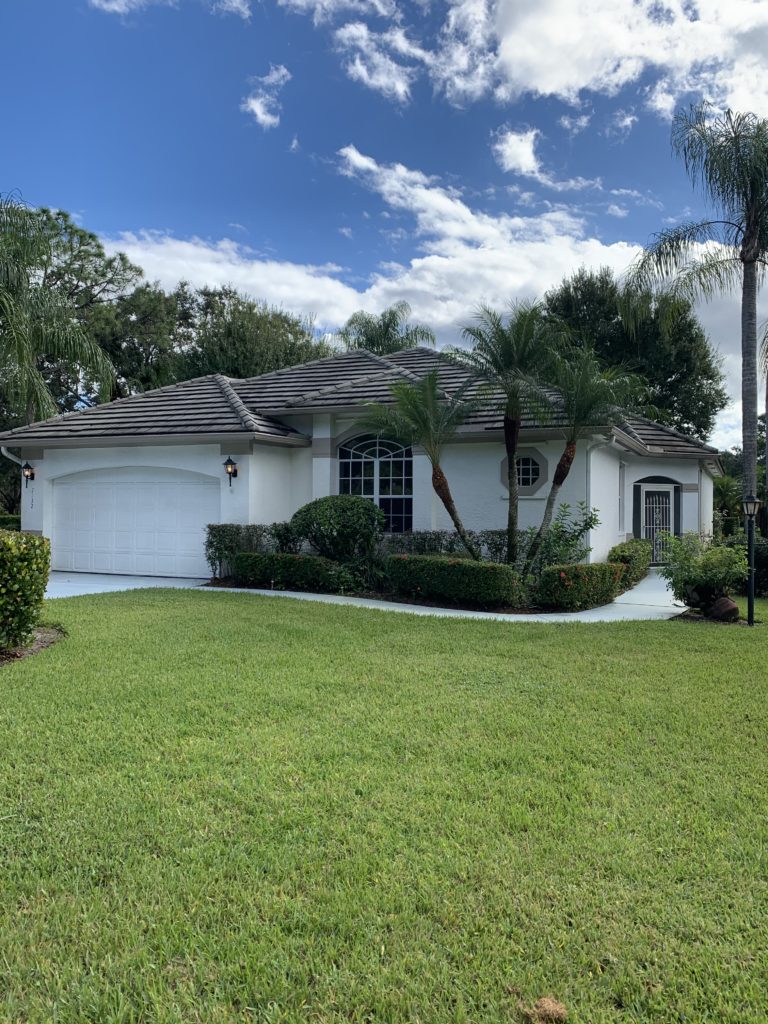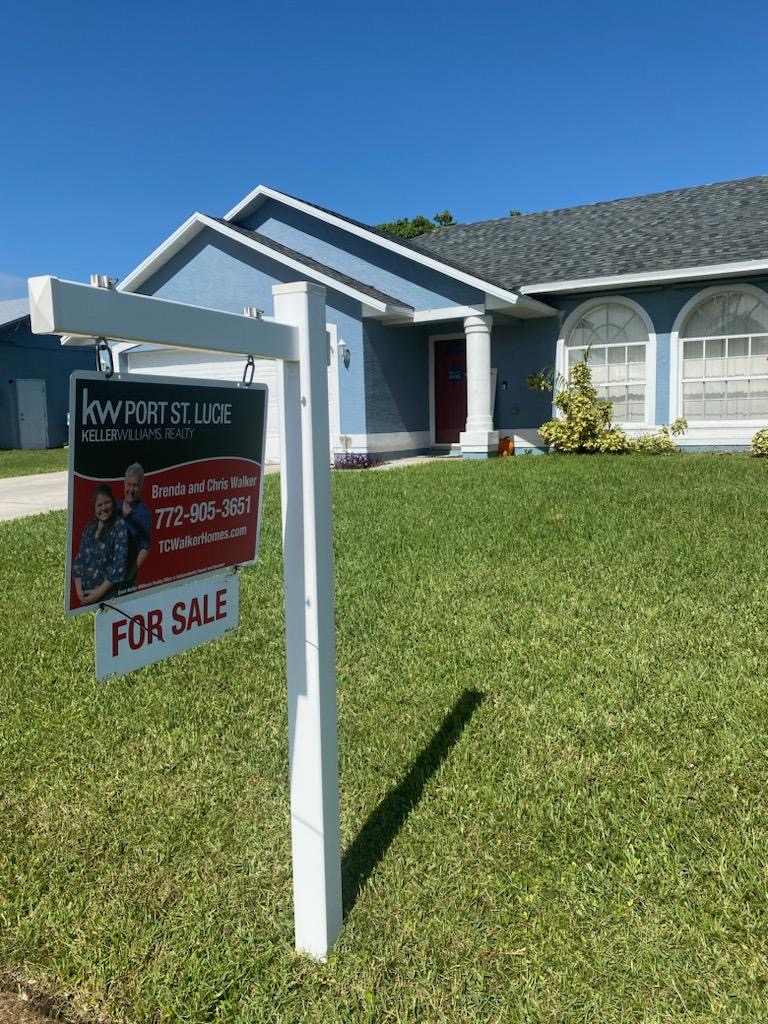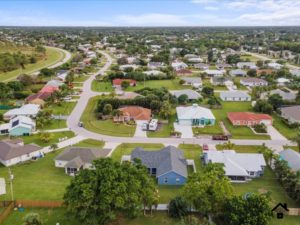Selling a house can be a daunting task on its own. But when you find yourself living 1000 miles away from the property you need to sell remotely, the challenge can feel insurmountable.
This situation often arises with inherited properties. You have the need to empty, prepare, and sell the empty house, but becomes especially challenging being so far away.
It may also arise from a property you left rented when it didn’t sell before your move, or a rental property in your portfolio you held when you lived in that area but now moved away.
For example, we received a phone call from a person whose father owned a property here in Port St Lucie. The father had passed away and now the property was vacant. There were no relatives nearby. This caller lived more than 15 hours away and had no desire to come to Port St Lucie and deal with it.
We had a home in Virginia that we sold remotely. Even when we no longer lived in Virginia, we bought and sold property remotely. We know from experience that you can remotely sell a home.
To successfully navigate this complex process, a real estate agent is your greatest ally.
If your property is in our service area from Vero Beach FL, Fort Pierce FL, Port St Lucie Florida, Jensen Beach, Stuart, Hobe Sound, Jupiter areas of Florida, give us a call and we’ll walk with you through the process.
Let’s explore the essential steps and strategies for selling a house remotely from a long distance, emphasizing the critical role a local Realtor plays in reducing your stress and ensuring a successful sale.

1. Initial Assessment and Planning
The first step in selling a house remotely is conducting a thorough initial assessment.
You might have inherited the property from a relative. Maybe it was a rental investment property near where you lived and you’ve moved away.
You need to understand its current condition, market value, and potential issues that may affect the sale.
Without the ability to travel to the property, a local realtor team (like Chris and Brenda Walker of Casas De Walker) becomes your eyes and ears on the ground.
You can ask the agent you find to perform a comprehensive evaluation, including assessing the property’s condition, taking photographs, and noting any necessary repairs or improvements.
2. Finding a Local Realtor
Finding the right local realtor is absolutely crucial in this scenario. Look for a realtor with a strong local presence, knowledge of the market, and a proven track record of successfully managing long-distance sales.
Interview multiple real estate agents, and ask about their experience handling similar situations.
A qualified realtor can provide a list of references, so you can check their track record with past clients who were in a similar position.

3. Clear Communication and Remote Collaboration
Once you’ve chosen a local realtor, open lines of clear and constant communication are key.
Emphasize the importance of regular updates and reports on the property’s status.
Utilize video calls and online communication tools to stay in touch. Establish a plan for how often you expect to receive updates.
4. Decluttering and Emptying the Remote Property
For many sellers, especially those dealing with inherited properties or long-distance rental properties, decluttering and emptying the house is a significant task.
The local realtor can help facilitate this process by connecting you with local service providers who can assist with estate sales, auctions, or donations of items.
Those professionals can oversee the entire process, from packing to clearing out the house, ensuring a seamless transition.
5. Home Repairs and Preparations
Depending on the property’s condition, repairs and preparations may be necessary to maximize its market value. A local realtor will have a network of contractors and service providers who can tackle the needed work. The Realtor can help you connect with other vendors like electricians, inspectors, and repair contractors.
Any work or repairs you want to do before listing your home for sale are between you and those licensed professionals.
This is where tough decisions have to be made.
- How much do you want to invest in the property?
- Basic level like deep clean and paint?
- Step up levels like modernizing light fixtures and faucets?
- Major improvements like kitchen or bath upgrades?
- Capital improvements like a new roof, replacement windows, or resurfacing the pool?
Pro Tip: Don’t expect a Realtor to “Get bids” for you. You will design your own scope of work, paint color choices, and define expectations for the level of renovation. A local Realtor can put you in touch with the right people and grant them access to the property for assessment.

Rather than remotely manage $80,000 in repairs, it was sold as-is to one of our cash buyers.
6. Staging and Photography
Properly staging the home and capturing appealing photographs are essential to attract potential buyers.
Your local realtor will work with professional stagers and photographers to ensure the property is presented in the best possible light.
They will share the photos with you for approval before listing the house on the market.
7. Market Analysis and Pricing Strategy
A key part of a local realtor’s role is conducting a market analysis to determine the property’s current market value.
Based on this analysis, they will help you establish a competitive pricing strategy that takes into account the local real estate market, comparable property sales, and the property’s condition.
8. Listing the Remote Property for Sale
Once the remote property is ready, your local realtor will list it on the market. They will create a compelling listing that highlights the property’s strengths, ensuring it reaches the right audience of potential buyers.
They will also manage inquiries and showings, guiding interested parties through the property via virtual tours or video calls.

9. Negotiations and Closing on Your Remote Property
When offers start coming in, your realtor will be your advocate. They will negotiate on your behalf, ensuring you receive the best possible deal.
Throughout this process, your local realtor will keep you updated, providing you with all necessary documentation to review and sign remotely.
10. Handling Legal and Administrative Details
The remote sale of a property involves various legal and administrative processes, such as inspections, appraisals, and closing procedures.
Your local realtor will ensure that these steps are completed efficiently and according to local regulations, working with local legal and financial professionals as needed.
11. Remote Notarization and E-signatures
In today’s digital age, many documents can be notarized and signed electronically, making it easier to handle paperwork from a distance.
Your local realtor and the title company of your choice or the buyer’s choice can help facilitate this process, ensuring that all documents are properly executed, and transactions are secure.

12. A Smooth Transition
As the sale of your remote property progresses, your local realtor will also facilitate the transition to the new owner. They can help with the transfer of keys, any necessary inspections, and other logistical details.
Can you sell a house remotely?
Selling a house from a distance, especially when you live 1000 miles away, presents unique challenges. In the case of an inherited property, the urgency to empty, prepare, and sell the house can add an extra layer of complexity.
However, with the assistance of a competent and dedicated local realtor, these challenges can be effectively managed.
A local realtor becomes your trusted partner. This ensures that the property is thoroughly assessed, prepared, and marketed to attract potential buyers. Your local realtor helps you navigate the legal and administrative details, conduct negotiations, and facilitate a smooth transition to the new owner.
By relying on a local realtor like Chris and Brenda Walker, you can reduce your stress and increase the likelihood of a successful sale, even when you’re thousands of miles away.



